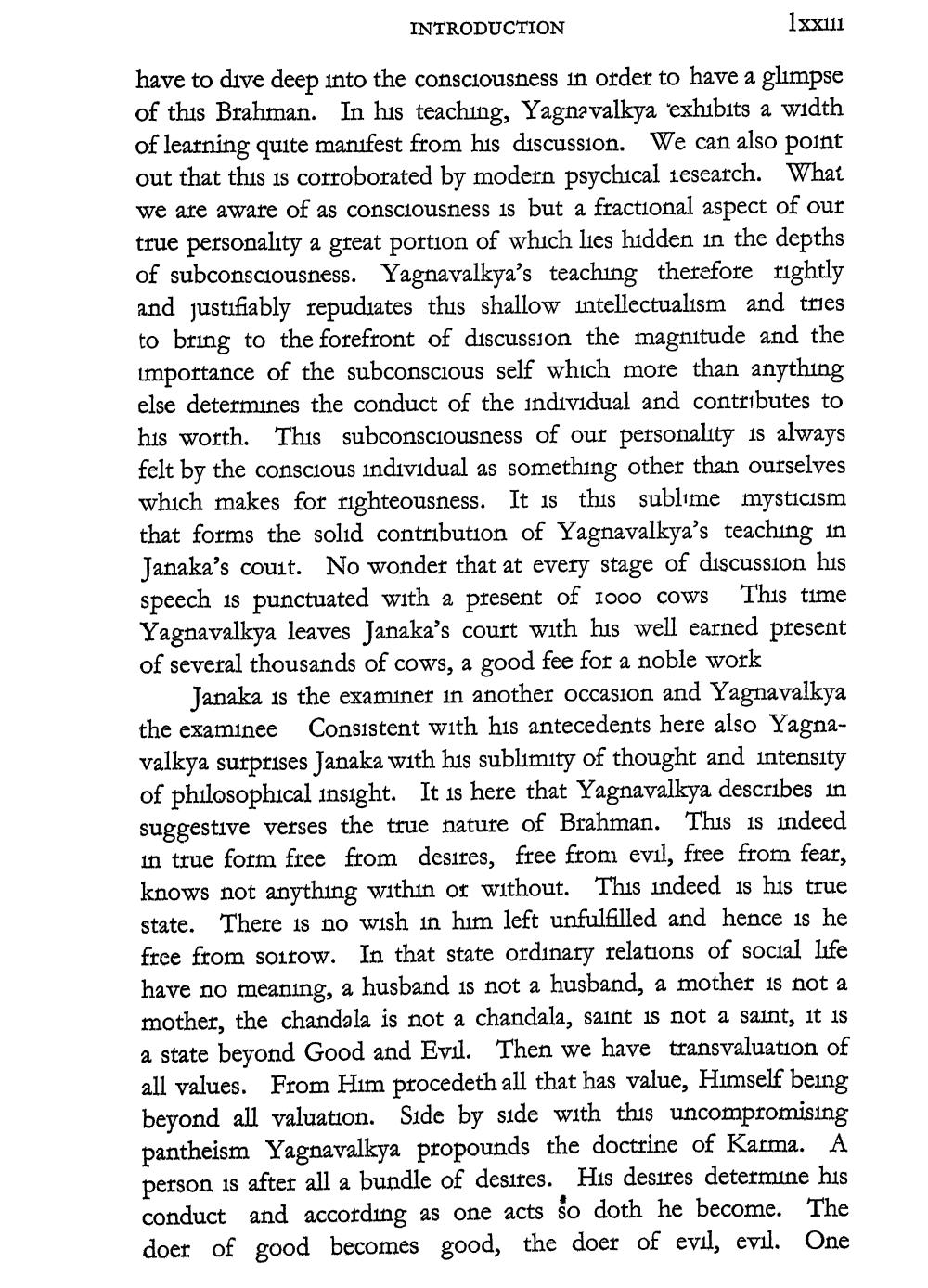________________
INTRODUCTION
1xx111
have to dive deep into the consciousness in order to have a glimpse of this Brahman. In his teaching, Yagnavalkya 'exhibits a width of learning quite manifest from his discussion. We can also point out that this is corroborated by modern psychical iesearch. What we are aware of as consciousness is but a fractional aspect of our true personality a great portion of which lies hidden in the depths of subconsciousness. Yagnavalkya's teaching therefore rightly and justifiably repudiates this shallow intellectualism and tries to bring to the forefront of discussion the magnitude and the importance of the subconscious self which more than anything else determines the conduct of the individual and contributes to his worth. This subconsciousness of our personality is always felt by the conscious individual as something other than ourselves which makes for righteousness. It is this sublime mysticism that forms the solid contribution of Yagnavalkya's teaching in Janaka’s couit. No wonder that at every stage of discussion his speech is punctuated with a present of 1000 cows This time Yagnavalkya leaves Janaka's court with his well earned present of several thousands of cows, a good fee for a noble work
Janaka is the examiner in another occasion and Yagnavalkya the examinee Consistent with his antecedents here also Yagnavalkya surprises Janaka with his sublimity of thought and intensity of philosophical insight. It is here that Yagnavalkya describes in suggestive verses the true nature of Brahman. This is indeed in true form free from desires, free from evil, free from fear, knows not anything within or without. This indeed is his true state. There is no wish in him left unfulfilled and hence is he free from sourow. In that state ordinary relations of social life have no meaning, a husband is not a husband, a mother is not a mother, the chandala is not a chandala, saint is not a saint, it is a state beyond Good and Evil. Then we have transvaluation of all values. From Him procedeth all that has value, Himself being beyond all valuation. Side by side with this uncompromising pantheism Yagnavalkya propounds the doctrine of Karma. A person is after all a bundle of desires. His desires determine his conduct and according as one acts so doth he become. The doer of good becomes good, the doer of evil, evil. One




